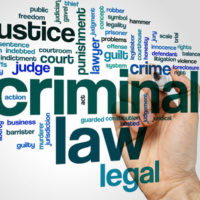What are the Maryland Laws Against Distributing Illegal Drugs?

In the interest of public health and safety, it is a crime in the State of Maryland to distribute illegal drugs. Referred to legally as controlled substances, illegal drugs generally have addictive qualities and can result in death in overdose situations. Accordingly, it is unlawful to engage in drug dealing or a similar effort to transfer possession of these substances.
Definitions of Deliver, Dispense, & Distribute
As established in Maryland Code of Criminal Law Section 5-101, there are specific legal definitions for the terms deliver, dispense, and distribute. In order to make sense of Maryland’s laws against dealing controlled substances, it is necessary to understand the exact meaning of these three terms.
- Deliver — This term refers to the actual or attempted transfer of possession of controlled substances, whether or not anything is paid for the transfer;
- Dispense — This term refers to the administration of controlled substances to a person or the prescription of controlled substances for delivery; and
- Distribute — This term refers to any delivery of controlled substances that does not fall within the boundaries of dispensing.
Laws Against Dealing Controlled Substances
As detailed in Maryland Code of Criminal Law Section 5-602, it is generally illegal to deliver, dispense, or distribute controlled substances. Specifically, this section prohibits any person from:
- Distributing or dispensing controlled substances; or
- Possessing controlled substances in a large enough quantity to indicate the intention to distribute or dispense the controlled substances.
That being said, Maryland law does carve out exceptions for certain lawful uses of controlled substances. For example, certain licensed providers are allowed to distribute or dispense controlled substances for medical purposes. Though there are strict controls in place to prevent the unlawful distribution or dispensing of controlled substances.
Penalties for Dealing Controlled Substances
Under Maryland law, there is a multifaceted penalty structure for dispensing or distributing controlled substances. If convicted, the punishment can change depending on the type of controlled substance and number of prior offenses.
The general penalties for unlawfully dealing controlled substances appear under Maryland Code of Criminal Law Section 5-607. In most cases, unlawfully distributing or dispensing a controlled substance is a felony offense. Upon conviction, the punishment includes imprisonment for up to five years and fines with an upper limit of $15,000.
The penalties for unlawfully dealing fentanyl and heroin mixtures appear under Maryland Code of Criminal Law Section 5-608.1. This section provides that the unlawful distributing or dispensing of fentanyl and heroin mixtures is a felony offense. Upon conviction, the punishment includes imprisonment for up to 10 years, in addition to any other legal penalties under state law.
The penalties for unlawfully dealing certain narcotic drugs appear under Maryland Code of Criminal Law Section 5-608. This section provides that the unlawful distributing or dispensing of Schedule I/II controlled substances is a felony offense. Upon conviction, the punishment includes imprisonment for up to 20 years and fines with an upper limit of $15,000.
Do You Need Legal Help?
If you have legal questions about delivering, dispensing, or distributing illegal drugs in Maryland, it can be markedly constructive to speak with a capable criminal defense lawyer. The Baltimore criminal lawyers at Iamele & Iamele, LLP have demonstrated capabilities defending against various drugs crimes and other criminal charges. If you need legal help, contact us today for a free initial consultation.
https://www.iamelelawfirmbaltimore.com/exploring-4-versions-of-dui-dwi-in-maryland/

